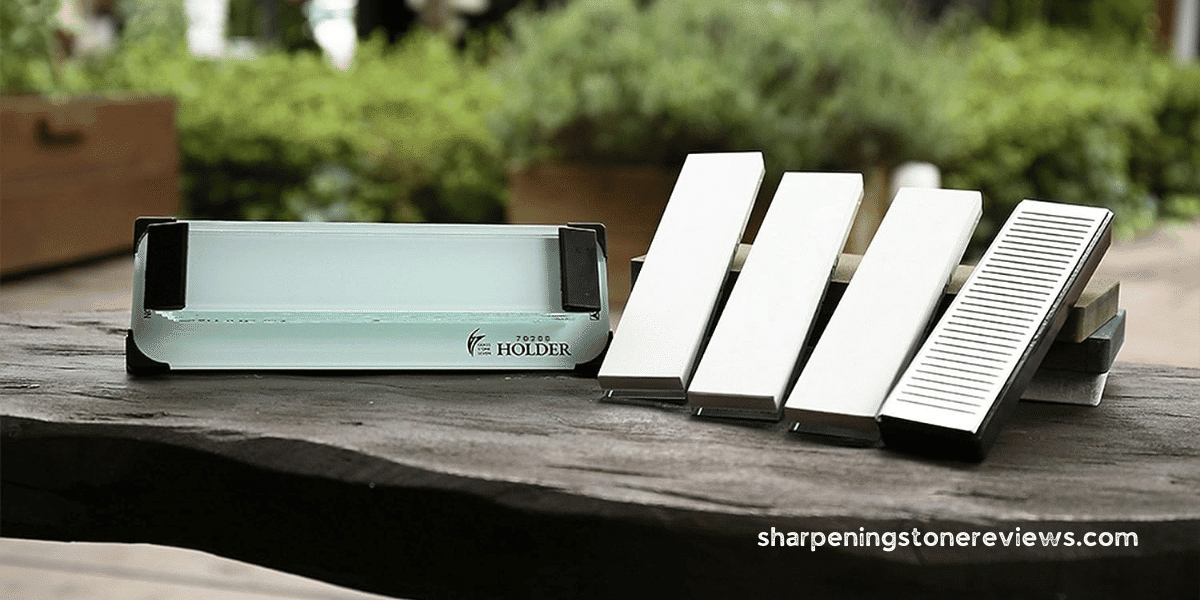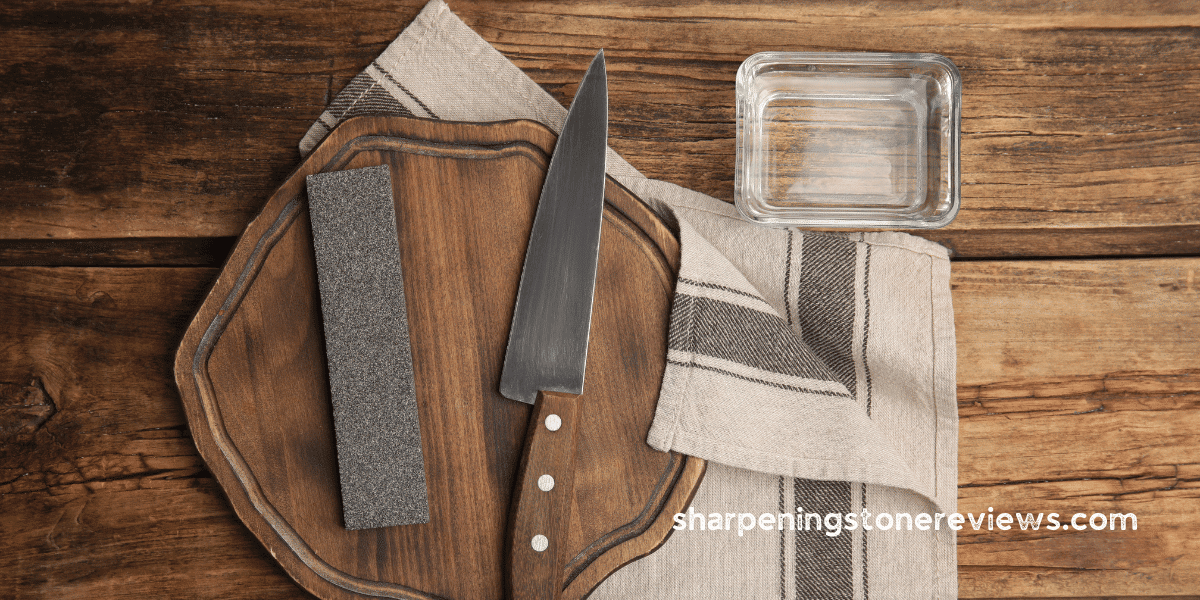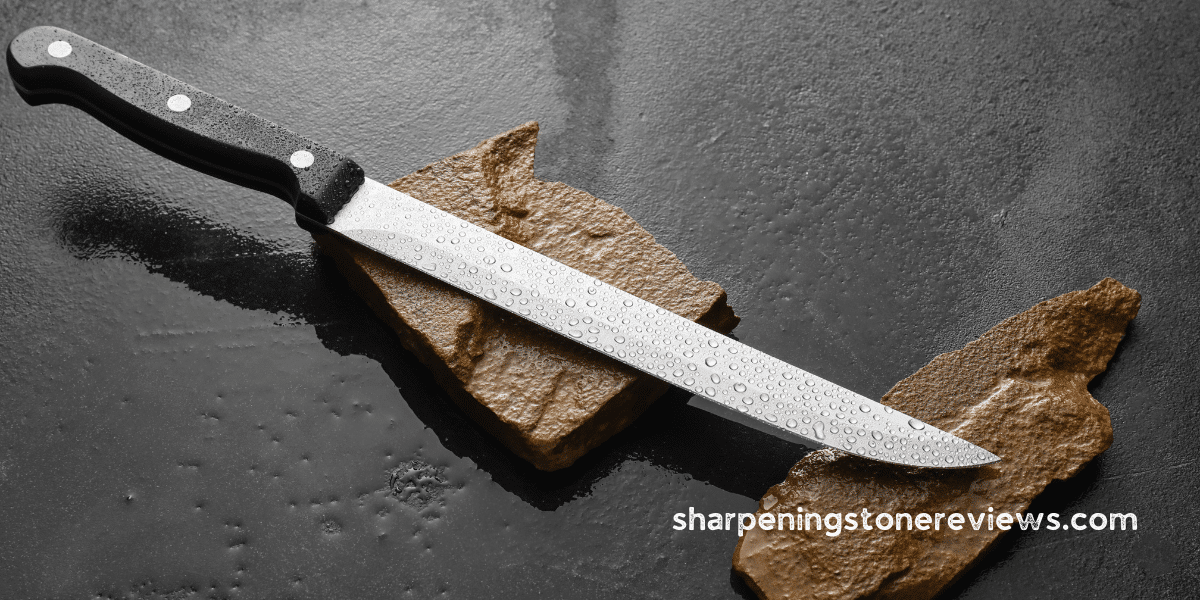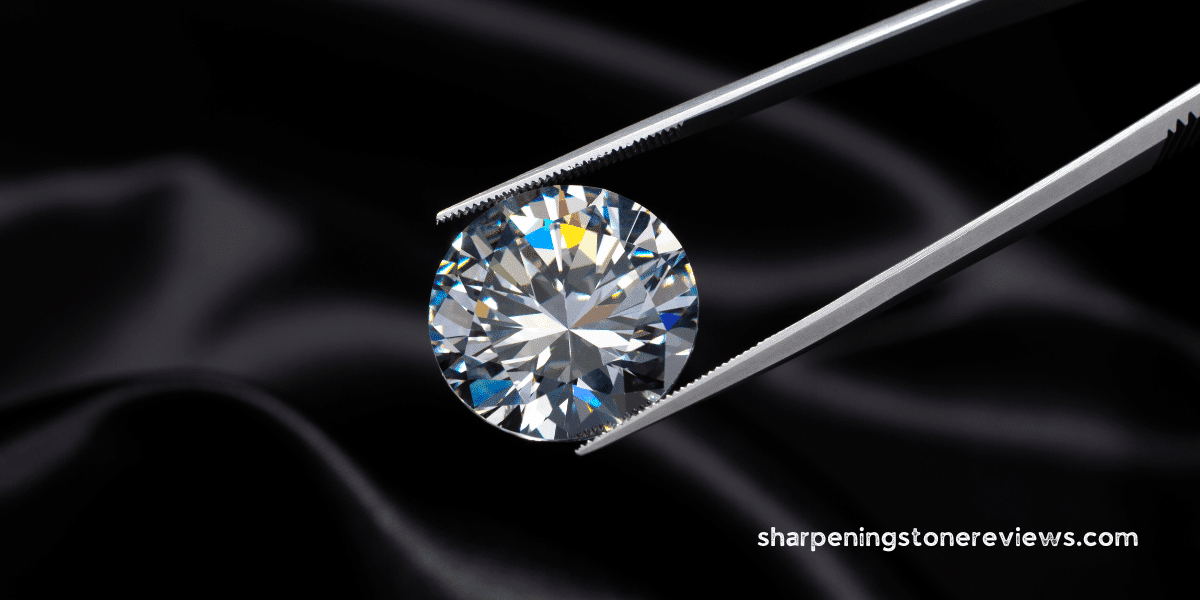Are you tired of dull knives that struggle to cut through even the softest vegetables? Look no further than the battle of Shapton Glass Stones vs Naniwa.
Picture yourself holding a luxurious sharpening stone in your hand, its sleek rectangular shape mounted on a tempered glass plate. The Naniwa stones, with their white-grey color, and the Shapton stones, boasting a 0.5 cm thick glass part.
Get ready to dive into the world of sharpening performance, durability, price range, and more as we compare these top-quality brands.
Material composition
The Naniwa stones are made of a homogeneous material, while the Shapton stones have a glass composition. The Naniwa stones are white-grey in color and have a traditional rectangular shape. They are mounted on a plate of tempered glass, giving them a luxurious look. The grit size is indicated behind the glass, making it easy to identify the right stone for your sharpening needs.
On the other hand, Shapton stones are also rectangular in shape and have synthetic stones with a glass layer on top. This glass layer gives them their distinctive appearance and adds durability to the stone. The glass part of Shapton stones is about 0.5 cm thick, making the overall thickness of the stone effectively 0.6 cm.
Both Naniwa and Shapton stones are suitable for sharpening steel knives, but they excel in different areas. Naniwa stones are known for their hardness, which prevents the knife from biting into the stone during sharpening. This makes them easy to work with and allows for quick removal of material from the blade.
On the other hand, Shapton stones are even harder than Naniwa stones and can remove material faster from harder steels. The higher hardness of Shapton stones allows for faster movements during sharpening, making it an excellent choice if you’re looking to quickly restore a dull edge.
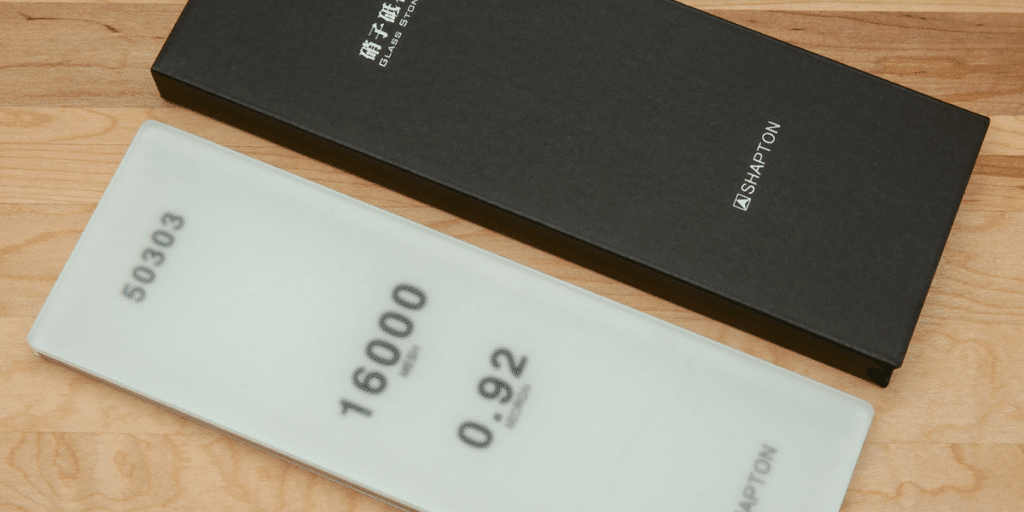
Grit range
Naniwa stones have a grit range that goes up to 10,000, while Shapton stones go up to 16,000. The grit range of a whetstone refers to coarseness or fineness of abrasive particles embedded in the stone’s surface. A higher grit number indicates a finer abrasive and produces a smoother and more polished edge on your knife.
When it comes to sharpening edges, both Naniwa and Shapton stones offer excellent performance. However, the difference lies in their ability to create an ultra-sharp edge. Shapton glass stones, with their larger maximum grit size of 16,000, provide an advantage when it comes to achieving an incredibly sharp edge on your blades.
Using a combination of Naniwa and Shapton stones can result in even better results for your sharpening needs. Here is a suggested stone progression:
- Start with a lower grit Naniwa stone (e.g., 1000) for initial shaping and removing any nicks or chips from your blade.
- Move onto a medium-grit Naniwa stone (e.g., 3000) for further refinement and smoothing out the scratches left by the previous coarse stone.
- Finish off with a high-grit Shapton glass stone (e.g., 16,000) to create an incredibly sharp and polished edge.
By incorporating this three-step process into your sharpening routine, you can achieve exceptional results with both brands of stones.
It’s important to note that while Shapton stones may have a higher maximum grit size, both Naniwa and Shapton are renowned for their quality and performance in producing sharp edges. Ultimately, choosing between these two top-quality brands will depend on personal preferences regarding desired grit size and other factors such as ease of use or water absorption properties.
Size options
When it comes to size options, both Naniwa and Shapton offer stones that are 21.0 x 7.0 cm in dimensions. These stones are a popular choice for sharpening knives and other tools due to their versatility and ease of use. The size of the stone is important as it determines the amount of surface area available for sharpening.
Naniwa Professional stones come in this standard size, making them suitable for a wide range of sharpening needs. Whether you are professional chef or an amateur cook, these stones provide ample space for achieving razor-sharp edges on your knives.
Similarly, Shapton Glass Stones also come in this size, offering users the same level of convenience and flexibility. With their unique glass plate design, these stones not only provide a luxurious appearance but also ensure stability during sharpening.
Having consistent dimensions between these two brands allows users to easily switch between different grit sizes without any hassle. Whether you need a coarse stone for removing nicks and chips or a fine stone for polishing your blades to perfection, both Naniwa and Shapton have got you covered with their range of stones in this standardized size.
Sharpening performance
To achieve optimal sharpness on your knives, consider the sharpening performance of both Shapton glass stones and Naniwa. Both brands offer high-quality sharpening stones that can effectively enhance the edge finish of your stainless steel knives.
Naniwa stones are known for being easy to sharpen with and are pretty hard. The hardness of these stones prevents the knife from biting into the stone, resulting in a smooth sharpening process. They also remove material quickly, which allows for a sharp and polished edge.
On the other hand, Shapton glass stones are even harder than Naniwa stones and remove material faster. The higher hardness of these stones enables faster movements during sharpening, making them ideal for those who want quick results.
When comparing the two brands, there is little difference in terms of sharpness and finish. However, it’s worth noting that Shapton offers a wider range of grit sizes compared to Naniwa. For instance, Shapton goes up to a grit size of 16,000, while Naniwa only reaches 10,000. To achieve the best results, you could use a Naniwa 10,000 stone followed by a Shapton 16,000 stone for an extra fine finish.
Ultimately, both Naniwa and Shapton are considered top-quality brands in terms of sharpening performance. The choice between them depends on personal preferences such as desired grit size and speed of sharpening. It’s important to select the brand that aligns with your specific needs in order to achieve optimal results when sharpening your steel knives.
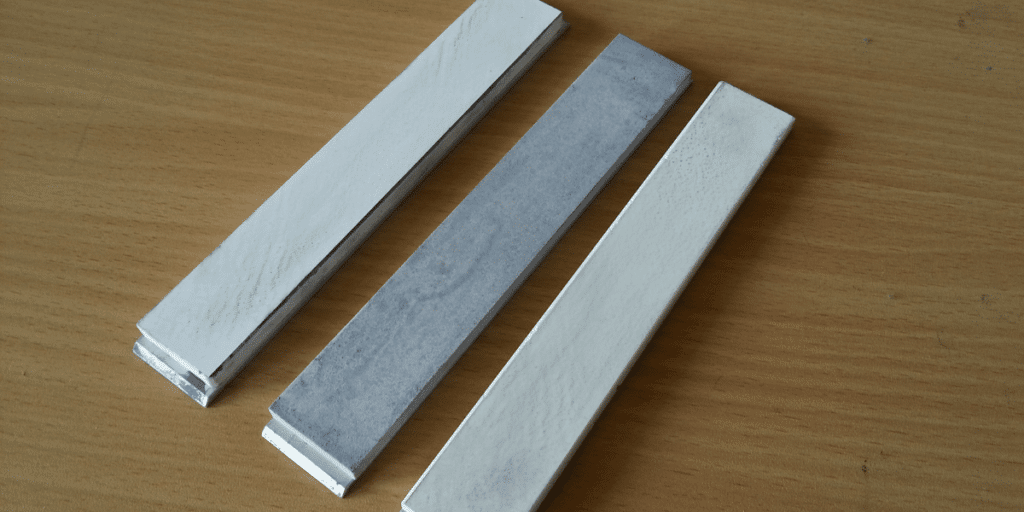
Durability and longevity
Durability and longevity are most important factors to consider when choosing between different brands of sharpening stones. When it comes to Shapton glass stones and Naniwa, here are four key points to keep in mind:
Durability
Both Shapton glass stones and Naniwa are known for their durability. The Shapton glass stones, made with unique ceramic material, are highly resistant to wear and can withstand heavy use without losing their effectiveness. Similarly, Naniwa stones, made from high-quality water stone materials, have excellent durability that ensures they last for a long time.
Longevity
In terms of longevity, both brands offer reliable options. However, Naniwa stones tend to have a longer lifespan due to their thicker build compared to the Shapton glass stones. The added thickness allows for more usage before the stone wears down completely.
Ceramic vs. Diamond Stones
Shapton glass stones utilize a ceramic material that provides excellent sharpening performance while maintaining its shape over time. On the other hand, Naniwa offers diamond stones that are known for their exceptional durability and ability to maintain their cutting edge even after prolonged use.
Water Stone Product
Both Shapton glass stones and Naniwa fall into the category of water stone products, which means they require water for optimal performance during sharpening sessions. This feature adds convenience as you don’t need any additional lubricants or oils while using these products.
Considering the factors of durability and longevity is crucial in selecting the right sharpening stone brand for your needs. Whether you choose the durability of Shapton glass stones or the extended lifespan of Naniwa’s water stone products ultimately depends on your personal preferences and requirements for a sharpening tool.
Water requirements
Now let’s talk about the water requirements of Shapton glass stones and Naniwa stones.
When it comes to water absorption, Shapton stones do not absorb any water at all. This means you can use them directly without the need for soaking.
On the other hand, Naniwa stones do not absorb a lot of water, but they still require some soaking before use. The amount of water absorption may vary depending on the grit size of the Naniwa stone.
In terms of user-friendliness, Shapton stones have an advantage as they don’t require any soaking. Just splash a little water on them, and you’re good to go. During sharpening, a little water will remain on the surface of the stone.
Naniwa stones, however, need to be soaked for a short period of time before use. This allows them to retain enough moisture during sharpening. Soaking also helps in preventing excessive wear and tear on these stones.
When it comes to choosing between Naniwa and Shapton stones based on their water requirements, it ultimately depends on your personal preferences and convenience. Some users prefer the simplicity and ease of use offered by Shapton Stones with their no-soaking requirement. Others may find that Naniwa’s slight water absorption provides better results during sharpening.
Ultimately, both brands offer top-quality products with similar appearances and dimensions. The choice between them lies in your desired grit size and your preference for either quick sharpening (Shapton) or a longer lifespan (Naniwa). Consider using a combination such as Naniwa 10,000 followed by finishing with Shapton Pro 16,000 to achieve that perfectly polished edge.
Overall, both Shapton glass stones and Naniwa are excellent choices for sharpening knives; it just boils down to what suits you best!
Price range
When it comes to the price range, you’ll find that both brands offer a variety of options to suit your budget. Here are three key factors to consider when comparing the prices of Shapton and Naniwa sharpening stones:
Material
Both brands offer different types of sharpening stones made from various materials. Shapton stones are known for their high-quality synthetic diamond plates, while Naniwa stones are made from natural stones. The use of different materials can affect the price differences between the two brands.
Grits
Shapton and Naniwa offer a wide range of grit sizes for their sharpening stones. The higher the grit size, the finer the stone’s abrasiveness. Both brands provide options ranging from coarse to fine grits, allowing you to choose according to your specific sharpening needs. However, keep in mind that higher grit sizes may come at a higher price point.
Packaging and Accessories
Another factor affects the price differences is the packaging and additional accessories included with each brand’s sharpening stones. Some packages may include stone boxes or storage cases, which can add value but also increase the overall cost.
It is important to note that while there may be some variations in pricing between Shapton and Naniwa sharpening stones, both brands are renowned for their quality and performance. Ultimately, your decision should be based on your personal preferences regarding material choice, desired grit size, and any additional features or accessories you may require within your budget constraints.
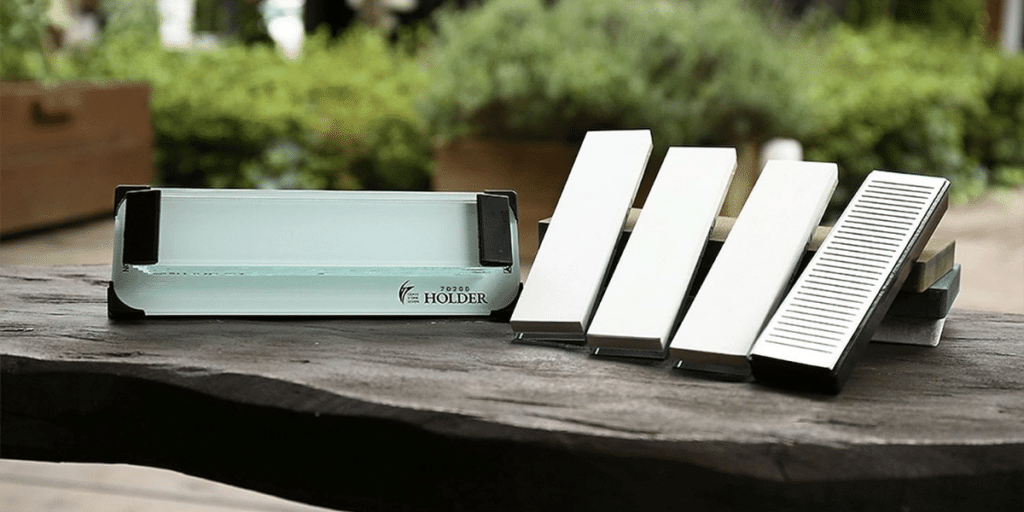
Availability and accessibility
If you’re looking for options in terms of availability and accessibility, it’s important to consider factors like local retailers and online platforms. Both Shapton Glass Stones and Naniwa stones can be found at various retailers, both in physical stores and online. Local kitchenware shops or specialty knife stores often carry these brands. Additionally, online platforms such as Amazon or knife enthusiast websites provide a wide range of options for purchasing these stones.
When it comes to stone types, both Shapton Glass Stones and Naniwa offer a variety of grit sizes to choose from. Whether you’re looking for a coarse grit for reshaping your blade or a fine grit for polishing the edge, both brands have options available. It’s worth noting that Shapton stones go up to a higher grit size compared to Naniwa stones, with Shapton offering up to 16,000 while Naniwa goes up to 10,000.
In terms of steel types, both Shapton Glass Stones and Naniwa are suitable for sharpening various types of steel. Whether you have carbon steel or stainless steel knives, these stones will effectively sharpen them.
When considering the price difference between Shapton Glass Stones and Naniwa stones, it’s important to note that there can be variations depending on the specific model and size of the stone. However, generally speaking, Shapton Glass Stones tend to be slightly more expensive compared to Naniwa stones. That being said, both brands offer options at different price points, so whether you’re looking for high-end professional-grade stones or beginner-friendly priced ones, there are choices available from both brands.
Overall, when it comes to the availability and accessibility of Shapton Glass Stones and Naniwa stones, they can be easily found through local retailers or online platforms. With various stone types available for different purposes and compatible with various steel types at different price points, there is something for everyone’s sharpening needs.
Brand reputation
Considering the brand reputation, you’ll find that both options have a strong following among knife enthusiasts. When it comes to sharpening stones, the names Shapton Glass Stones and Naniwa are well-known and respected in the industry. Here are three important points to consider regarding brand reputation:
Amazing Stones
Both Shapton Glass Stones and Naniwa are known for producing high-quality sharpening stones that deliver exceptional results. These brands have built a reputation for creating stones that can bring your knives to a cutting edge.
Cutting Edge
Good Japanese knives deserve the best tools for maintenance, and both Shapton Glass Stones and Naniwa offer just that. With their precision engineering and superior craftsmanship, these brands provide the perfect tools for achieving a mirror polish and a precision edge on your blades.
Brand Reputation
Both Shapton Glass Stones and Naniwa have established themselves as reliable choices in the sharpening stone market. Their consistent performance has earned them devoted followers who trust their products to deliver outstanding results time after time.
User preferences
User preferences play a key role in choosing between Shapton Glass Stones and Naniwa as favorite water stones. Both options offer excellent sharpening performance, but there are factors to consider that may influence your decision.
When it comes to appearance and dimensions, both brands have a similar rectangular shape. However, Naniwa stones have a luxurious look with tempered glass plates, while Shapton stones have a more straightforward design. In terms of size, both brands measure 21.0 x 7.0 cm, but Naniwa stones are about three times thicker than Shapton stones.
Water absorption is another factor to consider. Shapton stones do not absorb any water and can be used directly, making them more user-friendly in this aspect. On the other hand, Naniwa stones require soaking for a little while before use but don’t absorb much water.
In terms of sharpening performance, Naniwa stones are easy to work with and remove material quickly due to their hardness. They provide a sharp and polished edge without causing much damage to the knife’s blade. Shapton stones, being harder than Naniwa ones, remove material even faster and allow for faster movements during sharpening.
Both brands offer similar sharpness and finish results; however, Shapton goes up to larger grit sizes compared to Naniwa’s maximum grit size of 10,000. If you prefer an extra-fine mirror finish on your blades or work with a wide range of steels that require higher grit levels, Shapton might be the better choice.
Ultimately, choosing between Shapton Glass Stones and Naniwa depends on personal preferences regarding water absorption, ease of use, and desired grit size range for specific sharpening needs. To make an informed decision based on your preference, learning videos comparing both options may be helpful resources when considering which option best suits your needs.
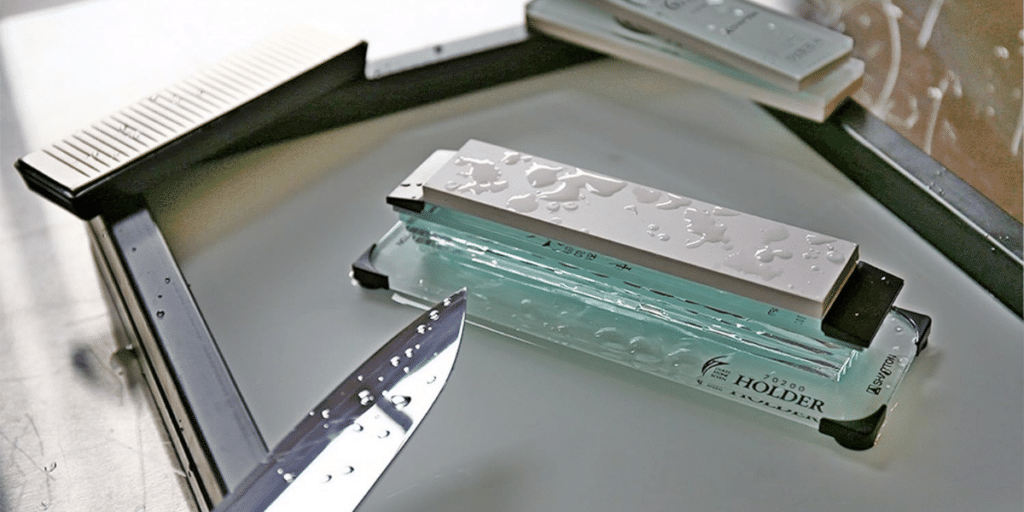
Frequently Asked Questions
Are Shapton and Naniwa Stones Made From the Same Material?
Yes, Shapton and Naniwa stones are made from the same material. They have similar appearances and dimensions, but there are differences in water absorption, hardness, and sharpening performance. The choice depends on personal preferences.
What Is the Maximum Grit Size Available for Naniwa Stones?
The maximum grit size available for Naniwa stones is 10,000. This high grit size allows for a sharp and polished edge on your knives. Consider using Naniwa 10,000 and finish with Shapton 16,000 for optimal results.
Are There Any Size Options Available for Shapton and Naniwa Stones Other Than the Standard 21.0 X 7.0 Cms?
Yes, there are size options available for both Shapton and Naniwa stones other than the standard 21.0 x 7.0 cm, however, without the context of Shapton Glass Stones Vs. Naniwa, I cannot provide specific details about these size options.
How Do Shapton and Naniwa Stones Compare in Terms of Durability and Longevity?
In terms of durability and longevity, both Shapton and Naniwa stones are top quality. However, the thicker Naniwa stones generally have a longer lifespan. The choice between the two depends on personal preferences.
Can Shapton and Naniwa Stones Be Used With Oil Instead of Water for Sharpening?
Yes, you can use both Shapton and Naniwa stones with oil instead of water for sharpening. The choice between two brands depends on personal preferences and desired grit size.
Final Thoughts
In conclusion, choosing between Shapton Glass Stones and Naniwa stones ultimately comes down to personal preference and desired grit size. Both brands offer high-quality sharpening stones with their own unique features.
Naniwa stones are easy to sharpen and remove material quickly. They are like a swift race car, allowing for fast and efficient sharpening. On the other hand, Shapton stones are harder and allow for faster movements during sharpening. They are like a powerful bulldozers, providing the strength and durability needed for heavy-duty sharpening tasks.
Consider your sharpening needs and preferences before making a decision. Think about the type of knives or tools you will be sharpening and the level of precision and speed you require. This will help you determine whether you need the quick and efficient sharpening of Naniwa stones or the strength and durability of Shapton stones.
To paint a picture, imagine the choice between these two brands as choosing between a swift race car (Naniwa) or a powerful bulldozer (Shapton), each excelling in its own way. Take the time to evaluate your needs and choose the brand that best aligns with your sharpening goals.
